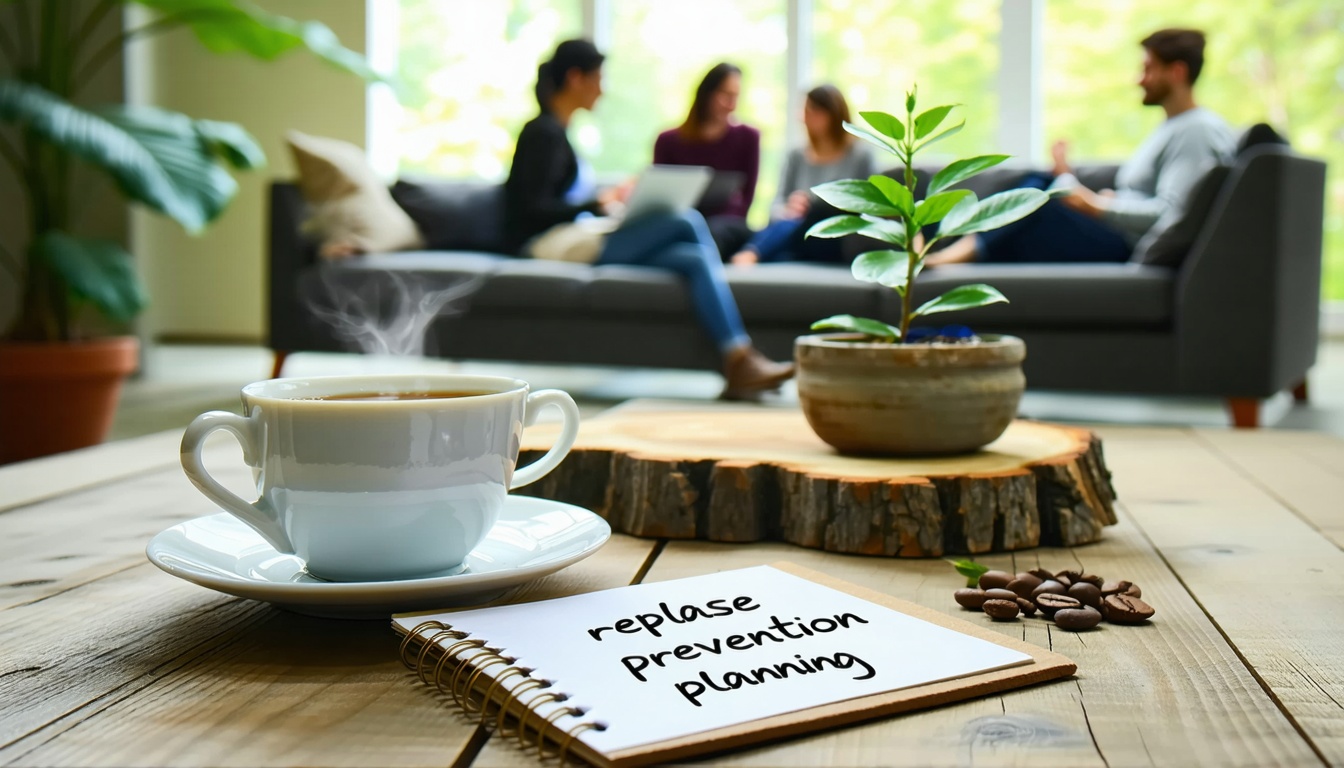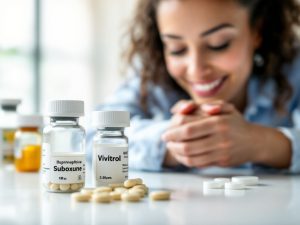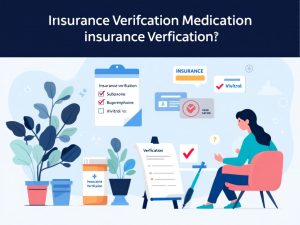Relapse prevention planning is one of the most important steps you can take on your journey toward sustainable wellness. By creating strategies to address emotional, mental, and social pressures, you establish a foundation that protects your overall well-being and nurtures a life free from substance use. In a supportive environment that acknowledges your unique challenges, you can gain the confidence necessary for lasting recovery. Evidence shows that relapse rates for substance use disorders can range from 40 to 60%, similar to relapse patterns in other chronic conditions such as asthma or diabetes (American Addiction Centers). This underscores the importance of developing a thoughtful plan to anticipate and respond to triggers, stressors, and personal vulnerabilities you may encounter.
Below, you will find comprehensive information about creating, maintaining, and strengthening a relapse prevention plan that aligns with your outpatient behavioral health, psychiatric, and substance-use care needs. You will also discover how Epic Health Partners stands ready to help you with tailored treatment programs and professional services that promote a sense of reassurance and empowerment.
Recognize the importance
Relapse prevention planning is not merely a set of instructions or rules to follow. Rather, it serves as a personalized toolkit for safeguarding your recovery journey. Research from The Recovery Village suggests that the first year after quitting an addictive substance is especially critical, with around 32.3% of individuals relapsing in that period. By the fifth year of sustained sobriety, however, that rate drops to about 9.6% (The Recovery Village). These findings highlight that maintaining active strategies against relapse can greatly improve your long-term prospects.
Planning for relapse prevention is also important for psychological and emotional stabilization. Having a plan in place means you have tangible reminders of your coping strategies, your support network, and the positive reasons you chose to pursue recovery. By addressing potential pitfalls before they arise, you minimize impulsive decisions that could threaten your progress. A carefully crafted relapse prevention plan can help you:
- Recognize early warning signs.
- Engage support systems promptly.
- Challenge negative thought patterns.
- Implement healthy coping methods.
This approach keeps you proactive instead of reactive and helps you make decisions that fortify your well-being rather than compromise it.
Understand the relapse process
Many experts describe relapse as unfolding in three distinct phases: emotional, mental, and physical. Each phase is characterized by a unique set of warning signs, and understanding these components helps you intervene earlier and more effectively.
Emotional relapse
Emotional relapse marks the initial shift in well-being. Stress, anxiety, and feelings of isolation can arise. You might start neglecting self-care, becoming easily agitated or defensive. If not addressed, these emotions build up and potentially lead you toward unhealthy coping methods. Simple measures—like journaling, engaging in mindfulness practices, or reaching out for professional help—can keep you from moving deeper into relapse.
Mental relapse
Mental relapse involves an internal battle. On one hand, you want to maintain your sobriety; on the other, part of you may start romanticizing or justifying substance use. Thoughts like “Maybe just one time” or “I’ve been sober long enough; I can handle it now” may occur frequently. This stage is often the most critical pivot point. Even though you have not used substances yet, you may begin to entertain the possibility more seriously. Seeking immediate support from therapists, peer groups, or close friends can stop a mental relapse from escalating.
Physical relapse
Physical relapse is the culminating act of returning to substance use. Once it occurs, it can quickly spiral into repeated usage. However, a single slip does not have to herald a complete return to old behaviors. If you find yourself in physical relapse, contacting professional services or activating a crisis plan can reduce negative outcomes and help you get back on track.
By anticipating these stages, you gain awareness and are better prepared to take preventative measures. Some people find it helpful to share this knowledge with their support system—family, friends, or peers—so that everyone recognizes early-warning signs and can intervene constructively.
Identify common triggers
A key element of relapse prevention planning is identifying what might prompt you to consider substance use. Triggers generally fall into two categories: internal and external. Ongoing research confirms that high-stress situations, especially if they involve emotional distress, can create a strong urge to return to substance use (Gateway Foundation). Recognizing how these triggers manifest in your daily life increases your chances of neutralizing their impact.
Internal triggers
Internal triggers are feelings or thoughts that arise from within. They often include emotions like anger, loneliness, or sadness. If unmanaged, such internal states can foster cravings. The HALT acronym—Hungry, Angry, Lonely, Tired—reminds you to check in on essential needs that might make you more vulnerable if left unmet.
When you sense these internal triggers, having a plan in place to address them can be tremendously beneficial. This could be as simple as:
- Reaching out to a peer support group
- Scheduling a session with a counselor or therapist
- Practicing healthy coping skills (e.g., breathing exercises, journaling, or meditation)
- Ensuring you maintain balanced nutrition and adequate rest
External triggers
External triggers include people, places, objects, or events that can elicit memories of substance use. If you accustomed yourself to drinking alcohol with a specific friend or in a certain environment, encountering either might heighten your susceptibility.
Experts note that even visual cues—like seeing old drinking buddies or returning to a familiar partying spot—can spark a subconscious emotional response, reinforcing the urge to use (Gateway Foundation). Thus, your plan could include strategies like:
- Avoiding high-risk locations, especially early in recovery.
- Restricting contact temporarily with friends who still engage in substance use.
- Having a “safe exit plan” when you must attend potentially triggering events.
Build a personalized plan
A relapse prevention plan should reflect your unique needs and circumstances. What works for one person may not be as effective for another. The most successful strategies evolve from genuine self-reflection and incorporate a range of support resources.
Crucial components to include
Research indicates that a well-rounded relapse prevention plan usually contains:
- A list of personal triggers
- Strategies to manage cravings (such as grounding exercises or quick, accessible distractions)
- Contact information for supportive peers, family members, and professionals
- A daily or weekly schedule that prioritizes self-care
- Problem-solving steps to address any signs of emotional distress
Relapse prevention models like the Gorski-Cenaps Relapse Prevention Model and Marlatt’s Model highlight the importance of ongoing reflection, coping-skill development, and active monitoring of your emotional state (The Recovery Village). By identifying potential pitfalls and constructing a plan to manage them, you give yourself the chance to intervene before a slip becomes a full relapse.
Setting realistic goals
Your plan also deserves a strong sense of direction. Setting realistic goals makes your plan easier to maintain over time. Examples include:
- Committing to a certain number of counseling sessions monthly.
- Engaging in group therapy at least once a week.
- Incorporating a 10-minute mindfulness exercise each day.
When you set small milestones, you create opportunities to celebrate successes, boosting your motivation and self-esteem.
Foster your support network
Effective relapse prevention planning is not a solo effort. Social support is repeatedly linked to better retention in treatment, higher abstinence rates, and improved overall health outcomes (NCBI). Feeling connected to others who understand your journey can be the difference between thriving and struggling. At times, you may be your own strongest advocate, but having a network of reliable individuals can keep you anchored when challenges arise.
Role of community
Recovery homes like Oxford Houses, or mutual help organizations such as Alcoholics Anonymous (AA), offer tangible examples of community support in action (NCBI). Such environments foster peer encouragement, share diverse coping tactics, and cultivate accountability. By staying connected with people who are committed to sobriety, you gain daily reinforcement that you are not alone.
If you feel more comfortable in virtual spaces or need flexible scheduling, online peer groups and counseling sessions are also an option. The key is to engage in some form of consistent, supportive community where everyone shares similar goals.
Professional assistance
While family and friends have a significant role, professional treatment programs provide essential expertise. With a comprehensive range of services like therapy, evaluations, and medical supervision, professional counselors or clinicians can:
- Assess your unique vulnerabilities.
- Suggest evidence-based therapies (like cognitive behavioral therapy).
- Monitor medication if appropriate.
- Provide crisis interventions to prevent escalation.
Furthermore, involving your family or loved ones in counseling sessions can improve communication and understanding, contributing to your successful relapse prevention. Research shows that negative family interactions—characterized by high criticism or excessive emotional pressure—can inadvertently raise your risk of relapse. Conversely, perceived social support significantly lowers it (PubMed Central).
Explore Epic Health Partners
At Epic Health Partners, we understand the unique challenges you may face in maintaining long-term recovery. Our individualized plans are built around your experiences, and we focus on comprehensive care so you receive the support necessary for lasting recovery. We offer a variety of outpatient behavioral health, psychiatric, and substance-use services that align with your relapse prevention planning, including therapy, medication management, and more.
Our commitment revolves around evidence-based treatment modalities, empathetic counseling, and respect for your personal journey. Some of our services that may enhance your relapse prevention plan include:
- Intensive outpatient program iop: A structured program designed to help you balance treatment with daily responsibilities, offering frequent therapy sessions in a supportive environment.
- Partial hospitalization program php: Provides access to full-day treatment while allowing you to return home in the evenings. A worthy option for individuals needing more robust support.
- Medication assisted treatment mat: Combines prescribed medications with counseling to reduce cravings and foster long-term sobriety.
- Substance use outpatient therapy: Focuses on coping mechanisms, relapse prevention strategies, and individualized therapy to address triggers.
Every aspect of our services encourages a holistic view of wellness—one that champions physical health, emotional stability, and social involvement as key ingredients in relapse prevention. Creating a plan that includes these resources ensures you have the best chance to navigate setbacks and progress toward sustainable wellness.
Frequently asked questions
How does relapse prevention planning help me remain sober?
Relapse prevention planning equips you with structured responses to internal and external triggers. By recognizing early warning signs, you can take proactive measures to avoid a crisis, seek help, and maintain your sobriety.What are common triggers for relapse?
Triggers can range from emotional stress—such as anger or loneliness—to external cues like passing by a bar you used to frequent. High-stress situations, unresolved negative emotions, and exposure to substance use are also common triggers.Can I manage a relapse prevention plan on my own?
While you can create a plan independently, professional support can identify hidden triggers, tailor strategies to your circumstances, and provide more advanced therapy options. Connecting with a diverse support system strengthens your plan significantly.Does Epic Health Partners provide telehealth options for relapse prevention support?
Yes. Through our telehealth therapy services, you can receive counseling remotely and engage with your therapists or care team without having to visit in person. This helps you maintain consistency in your treatment regardless of location or scheduling demands.What if my loved one has both addiction and a mental health issue?
We offer co occurring disorders treatment to address substance use and mental health issues simultaneously. This comprehensive approach ensures that you or a loved one receives the support needed for lasting change, rather than fragmented care that only focuses on one area.
Conclusion
Relapse prevention planning is as much about hope as it is about vigilance. It allows you to honor how far you have come and prepares you to meet challenges head-on. Whether you experience emotional turbulence, face cravings, or encounter social pressures, a robust plan gives you a reference point to guide your decisions. By breaking potential relapse into stages, identifying common triggers, and utilizing professional resources—such as partial hospitalization or outpatient therapy—you fortify your resolve.
At Epic Health Partners, we commit to supporting you through every phase of your recovery. From individualized outpatient services to specialized care for co-occurring disorders, our team is ready to help you build on your successes and navigate obstacles. When you choose to work with us, you choose compassion, expertise, and the tailored treatment programs crucial for achieving long-term wellness. By integrating systematic relapse prevention measures into your life, you lay the groundwork for an empowered, forward-looking, and fulfilling future—one where you grow stronger every day and continue to pursue healing on your own terms.







